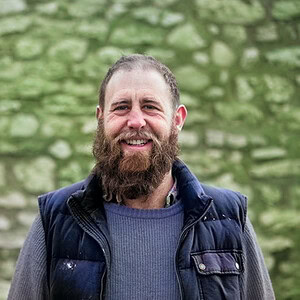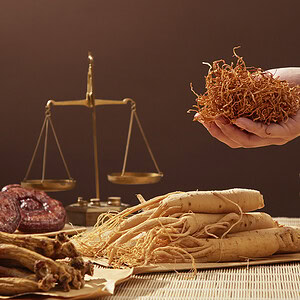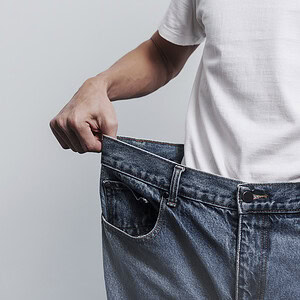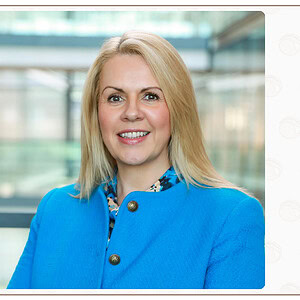Published on 31st July 2018
We talk to Belinda Blake, registered nutritional therapist, workshop leader, foodie and forager
Why did you become a nutritional therapist?
“It was really a combination of my own health problems and a love of food! I was diagnosed with endometriosis in my early twenties and explored many different therapies to help relieve symptoms, however nutritional therapy had by far the biggest impact and this is what initially inspired me to take it a step further and study it at ION.”
What are the challenges and rewards working with children and teenagers?
“I have found that children present many challenges to a nutritional therapist. The cases I see in clinic are rarely simple; children are generally not brought into clinic with straight forward blood sugar issues, and cases often require additional research time exploring new conditions. Children can also be quite firm about what they will and won’t eat – although sometimes not as challenging as their parents! This can require some creative thinking to resolve and has included the formation of my children’s cooking club. Despite the challenges, children are often very quick to respond to protocols and can soon experience an improvement in symptoms which is hugely rewarding.”
What food / ingredient do you always have in the kitchen?
“My kitchen is packed full of weird and wonderful foods that I am exploring either for myself or for various workshops, however eggs are my favourite go-to that I would not be without. A quick, nourishing and simple breakfast that sets me up for the day ahead. Our two hens are busy laying at the moment so we are guaranteed two amazing organic, free range eggs each day.”
How do you feel about the rising influence of health bloggers on people’s diets?
“Whilst it is great to see ‘healthy eating’ so high profile in the media and with enthusiastic individuals sharing their personal diets, this does cause me some concern. I work with a lot of adolescents who are very influenced by health bloggers and entranced by the aesthetics of their posts. It is a minefield. With so much often contradictory information out there, it is difficult to separate out fact from fad. Most dietary regimes present some benefit. However, we are all different and the trick is finding out what works best for us personally. It is also essential that we acknowledge that nobody eats perfectly all the time, as is suggested by some of these posts, and I would rather follow someone who is endorsing a more relaxed attitude to eating well, than encouraging orthorexia.”
Tell us about your foraging classes – should we all be picking our own herbs, fruits and flowers?
“Definitely! I only started foraging a few years ago after attending a wonderful foraging workshop run by medical herbalist, Janine Gerhardt. She helped to build my confidence in my ability to identify wild plants and we now run herb walks and workshops together: walking, chatting, picking, eating, and creating herbal products from this amazing wild bounty. Pure therapy! If anyone is new to foraging, I would strongly recommend starting as I did, and join a guided foraging walk initially so that you are confident in what you are picking.”
Do you follow any particular diet/rules yourself, i.e. paleo/vegetarian/intermittent fasting etc.?
“Throughout my life I have tried many different dietary regimes (some with more success than others). As a teenager I was a very poor vegetarian – motivated more by food ethics than health, which resulted in a diet very high in wheat and dairy and low in actual vegetables. In my early thirties I discovered nutritional therapy and came off all wheat, dairy, sugar, caffeine, alcohol, yeast etc., went back onto meat, and felt hugely better for it. All these elements have come in and out of my diet at various points in the subsequent years depending upon circumstances and stress levels!
“Now, in my early fifties, my body’s needs have changed yet again and I am experimenting with a more paleo diet and intermittent fasting. However, I feel a lot more relaxed about what I eat – I want to enjoy my meals, not become fixated upon what I should and shouldn’t eat. I still generally keep to a low-gluten, dairy and sugar diet and enjoy all other things in moderation.”
What are your three top nutrition tips?
“One: When you are busy, make time for a nutrition-packed smoothie. I currently make mine with frozen berries, spinach, almond butter, collagen powder, chia seeds, kefir and almond milk, plus add in my multivitamin and mineral powder and a magnesium supplement. Even if the rest of the day goes to pot, you know you will have ticked lots of boxes and can still feel you are looking after yourself!
“Two: Where possible, get your house mates [or] family on-board. It can feel alienating and demotivating eating differently from the rest of the household. You are more likely to succeed in any dietary regime if you are all generally eating the same meals – plus all will share the health benefit as well.
“Three: Finally, and most importantly – take time to really enjoy your food! The eating is almost as important as the food itself!”
You are running a workshop on fertility and preconceptual care at ION next month. What should women be eating, and avoiding, if they are trying to conceive?
“For those couples who are able to plan ahead and allow a period of nutritional preparation before trying to conceive, this can potentially provide an amazing benefit for them and any pregnancy – so ideally, recommendations are for both men and women. Foods generally discouraged are those that might potentially disrupt good hormone balance or harm the sperm or eggs, and include alcohol, caffeine (no more than a couple of cups of tea or coffee a day max) and processed or fried foods.
“A surprising top food to enjoy is beetroot – truly a vegetable for all occasions! Beetroot has not only been shown to support hormone balance and provide a ready source of B vitamins and energy, but also increases levels of nitric oxide in the blood and improve circulations to the extremities – including the sex organs – perhaps the reason that the ancient Romans revered it as an aphrodisiac!”
www.belindablake.co.uk
Belinda’s workshop Fabulous Foods for Fertility will be held on Sunday 29th September at Ambassador House, Richmond.
http://www.ion.ac.uk/Event/fabulous-foods-for-fertility-and-preconceptual-care-sept-2018
Read more articles and recipes






